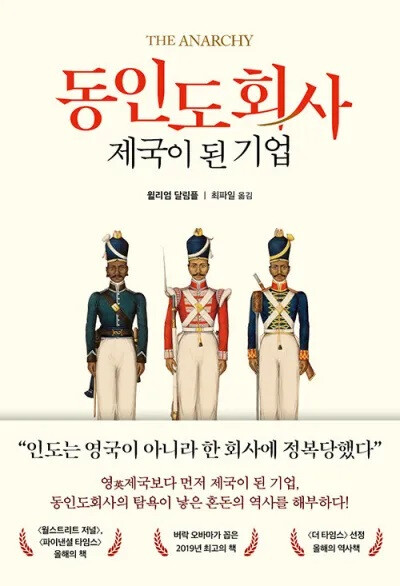
LONDON — “A single commercial company enslaved a country of 200 million people.” These words, penned by Leo Tolstoy in a 1908 letter to an Indian nationalist, capture the sheer scale of one of history’s most audacious conquests. The company he referred to was the British East India Company, a corporate entity that, from 1765 to 1857, ruled over a vast territory in India, effectively reducing the mighty Mughal Empire to a mere shadow of its former self.
For a company whose head office staff numbered just 35 a century after its founding in 1600, its transformation is nothing short of breathtaking. How did a small, seemingly insignificant enterprise come to dominate a country with a population five times that of the Ottoman Empire and which, at the time, produced a quarter of the world's manufactured goods?
This question is at the heart of William Dalrymple’s book, “The Anarchy: The East India Company, Corporate Violence, and the Pillage of an Empire,” a meticulously researched work that focuses on the pivotal period between 1756 and 1803. This era marked the company’s dramatic shift from a simple trading organization into a full-fledged imperial power. Dalrymple, a veteran historian and author, brings this complex history to life by drawing on a wealth of primary sources, including the company’s own documents held in the British Library in London and the National Archives of India in New Delhi, along with Persian-language historical records.
The East India Company’s rise was fueled by a unique combination of royal and parliamentary support, as well as the insatiable greed of its shareholders. It was granted unprecedented powers, including a trade monopoly in India, the right to deploy its own military forces, and even the authority to levy taxes. The British monarchy, isolated from continental Europe after its break with Catholicism, saw the company as a crucial tool for expanding its global influence and granted it immense authority.
This political backing was not accidental. The company systematically bribed Members of Parliament with its own stock, a practice that ensured favorable legislation was passed in Westminster. These bought-and-sold politicians twisted the law to serve the company's interests, creating a legal framework for its imperial ambitions. With its own private army—one that grew to become a formidable force—the company was able to enforce its will, not just through trade but through brute military power.
As the company-turned-empire reigned supreme, the Indian populace suffered under a crippling burden of excessive taxation and devastating famines. Unlike a traditional state, the East India Company was a corporation whose primary, if not sole, purpose was to maximize profits for its shareholders. The welfare of the people it governed was a secondary, and often ignored, concern. The book starkly describes the consequences of this corporate rule: "disorder and depravity no longer sought to hide themselves, and once peaceful India became a scene of chaos."
The Mughal dynasty, a symbol of centuries of Indian power and cultural richness, was systematically hollowed out. Its authority was gradually eroded until all that remained was a name or a "faint shadow." The company’s rise was not a classic military conquest but a corporate takeover on a continental scale, executed with a lethal mix of financial manipulation, political corruption, and ruthless military force.
The story of the East India Company is a chilling reminder of the dangers of unchecked corporate power. It illustrates how a commercial enterprise, driven by a relentless pursuit of profit, can dismantle a civilization and subject an entire population to its will. It’s a narrative that forces us to reconsider the very nature of empire, revealing it not just as a project of states and monarchs, but as a byproduct of capitalist greed writ large. The legacy of this “corporate empire” continues to resonate today, offering a stark lesson on the thin line between commerce and exploitation.
[Copyright (c) Global Economic Times. All Rights Reserved.]



























